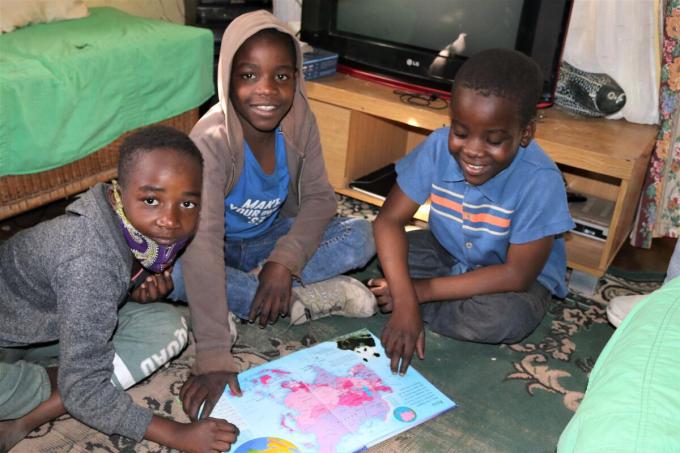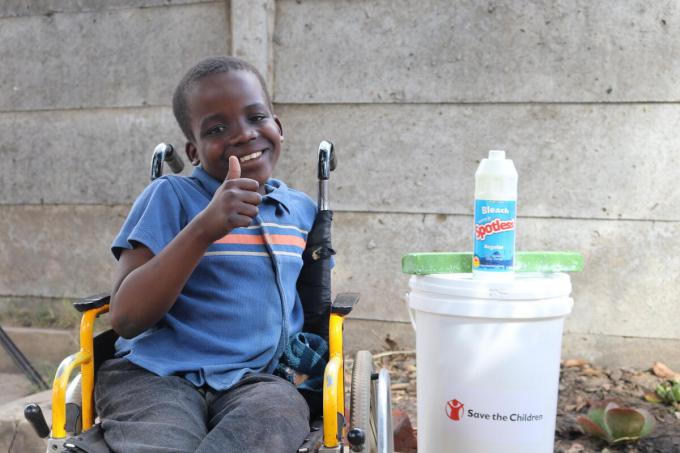IMPACT OF COVID-19 ON CHILDREN LIVING WITH DISABILITES: BRADLEY’S STORY
Bradley was born with spina bifida, which comes with a range of health complications, including bowel incontinence. He also has a clubfoot, and hydrocephalus, which means he has a shunt (medical device) fixed to his head to drain excess fluid from his head. Due to his condition, Bradley is particularly vulnerable to the impact of COVID-19.
He lives with his parents and siblings in Chitungwiza town, located 30km south of the capital city Harare in Zimbabwe. He learns at a local school but he has not be going since all schools in Zimbabwe were closed in March as a measure to curb the spread of Coronavirus.
“I am in grade 5. I am not going to school now because there in coronavirus. It is all over the world.” “I heard about COVID on TV and from my parents. I was told that I could protect myself from COVID by staying at home, wearing a mask when travelling, washing hands with soap and running water or using a hand sanitiser.”
“It is boring not to go to school. I now spend the whole day playing at our house. Sometimes I just read my schoolbooks. I also enjoy looking at the atlas. It shows me maps. I now know the countries with huge populations and I have knowledge about continents.”
“I wish COVID could end very soon so that I go back to school and play with my friends at school, and those in the neighbourhood as well.”

Bradley’s parents are informal traders they do not have a fixed source of income.Due to the global COVID-19 pandemic and lockdown in Zimbabwe, Bradley’s mother, Alice and her husband have been forced to stay at home.Alice explained that this has taken a toll on their work that was enabling them to earn an income, provide for their family, and cater for Tafadzwa’s special needs.
“COVID has really affected my business, and I am struggling. I need to visit my customers but at present, I cannot do that, because I need a permit to travel. The shops where I buy clothes for resale are closed. The borders with South Africa, Botswana and Zambia, where these clothes come from, are closed and this affects my business. I am scared of catching COVID and therefore I have to stay at home. We have no option because COVID is real.”
“The situation has made it difficult for me to cater for my son’s, Bradley special needs. Bradley has a health condition that makes him fail to control his bowel movements. He cannot tell when he needs to go and use the toilet, so he wears diapers. He uses about three to four diapers in a day. Most of the time he messes his clothes and I have to wash them and bath him. ”
Bradley is among the children from Chitungwiza and Epworth town council who received hygiene kits from Save the Children in June 2020 in response to COVID-19, under the Education Cannot Wait project. The contents of these kits include a water storage bucket for use in hand washing, bars of soap, bath towels, disinfectant and sanitary pads for girls.Bradley’s parents expressed that the hygiene kits went a long way in assisting them.

“All along, I was putting soapy water inside a used plastic bottle for my son to wash his hands. I will use the bucket he received to make sure he has easy access to running water for washing his hands.” “We use a lot of soap to wash my son’s clothes. The soap and towels we received come in handy for us as a family. ”
About 650 vulnerable children, including those with underlying health conditions and other special needs across 40 primary schools in the two towns, have been provided with hygiene kits.
 Zimbabwe
Zimbabwe